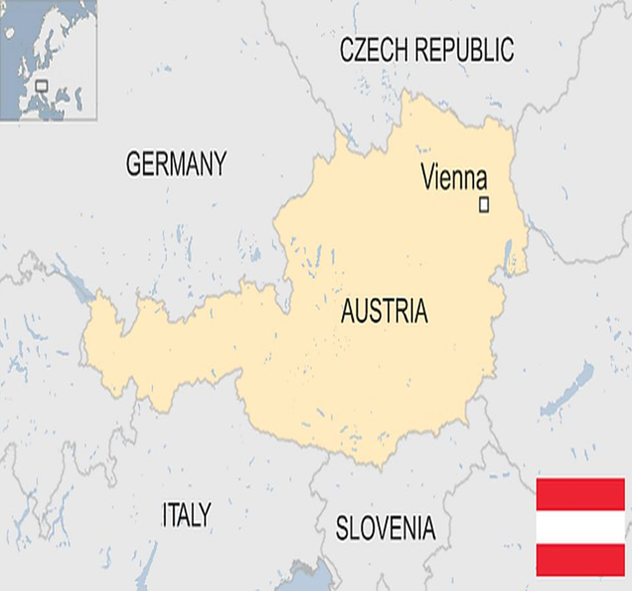
Five points about Austria
- An impressive 73% of the population of Austria speaks English. In fact, Austria places seventh out of 63 countries on Education First’s English Proficiency Index, with Austrians in every age group out-performing Europe-wide averages for their levels of spoken English
- Austria was one of the leading producers of movies and has a long winemaking tradition and produces both white and red varieties. Also, the single highest-selling energy drink on the planet “Red Bull” was created in Austria.
- Austria is one of the world’s eco-friendliest countries – about 63% of waste is recycled and most of the electricity comes through the use of renewable energy sources
- Europe’s tallest waterfalls the Krimml waterfalls are located in Austria.
- German is the official language of Austria and an important prerequisite for participating in the working, economic and social life of the country. Croatian, Slovenian and Hungarian are recognised as official languages of autonomous population groups in some regions
Location and Geography about Austria

Austria is a largely mountainous country because of its location in the Alps. The Central Eastern Alps, Northern Limestone Alps and Southern Limestone Alps are all partly in Austria. Of the total area of Austria (84,000 km2 or 32,433 sq mi), only about a quarter can be considered low lying, and only 32% of the country is below 500 metres (1,640 ft). Austria It is a federation of nine states, one of which is the capital, Vienna, the most populous city and state.
Economy of Austria
Austria is a highly developed industrialized country with an important service sector. The most important industries are food and luxury commodities, mechanical engineering and steel construction, chemicals, and vehicle manufacturing. Austria currently produces more than half of its electricity by hydropower.
Living Conditions and Cost of Living in Austria
Living conditions in Austria for a student in approximately 1,200 euros. This may vary a bit, depending on your study location for example, accommodation and other living costs may be higher in Vienna and other larger. The amount of money you will need greatly depends on how economically you live. Therefore, it is difficult to say exactly how much money a student in Austria needs per month.
Education System
Structure:Full-time education is compulsory for every child in Austria between the ages of 6 and 14. After reaching 14, students can opt for further education like upper secondary levels or tertiary level education depending upon the interest. Tertiary Education is for students aged over 18 and includes Universities such as Universities of Applied Sciences, Universities of Arts, Private Universities, and University College of teacher training and this is of age 18 and above. Austrian universities are divided into private and public ones and offer three degrees: bachelors, masters, and doctorate degrees. In Austria, students at the age of 16 may choose either the vocation or academic track program based on their field of interest and academic strengths. The vocational track lasts six years with a focus on practical life skills and preparation for an apprenticeship.
Information Specific to International Students
Austria’s capital is Vienna which is one of the most expensive European capitals, and winter vacations in the Austrian Alps are popular among the rich. Austria promotes innovation, creativity, and independent thinking throughout its universities. International students who study and live in Austria will soon find that their education is challenging, fun, and rewarding.
